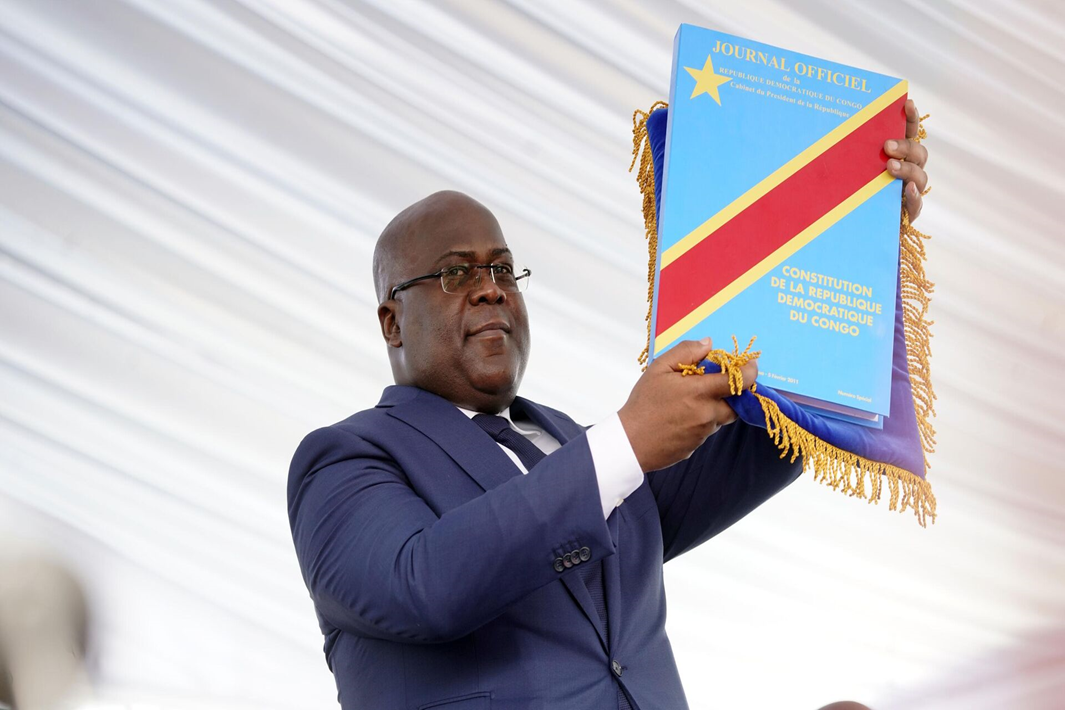By Wesley Omondi
KINSHASA, NOVEMBER 5, 2024 (CISA) – The recent proposal by President Félix Tshisekedi to amend the Democratic Republic of Congo’s constitution has generated substantial debate and concern across political and religious spectrums.
Originally enacted in 2006 under President Joseph Kabila’s administration, the constitution has been amended twice, with significant revisions in 2011 and 2015, each under Kabila’s tenure. Now, the prospect of further constitutional changes has many Congolese questioning its impact on the nation’s stability and democratic future.
“The potential changes to our national charter must be approached with utmost responsibility,” stated the National Episcopal Conference of Congo (CENCO), warning “Any revision without careful deliberation could introduce considerable risk to the nation’s peace.”
The Catholic bishops also cautioned that any move to amend protected articles in the constitution could destabilize the nation.
“We are already urging you to ensure that the locked articles that we protected together when you were in opposition are not touched.,” stated the bishops, cautioning that ignoring this request could lead to “social tensions that are difficult to manage” at a time when national unity is paramount.
The initiative has seen opposition coalesce against the proposed reforms, with critics expressing fears that the amendments may ultimately concentrate power within the ruling party.
Former PresidentJoseph Kabila’s Common Front for Congo (FCC) party has voiced strong opposition, cautioning against what it views as a potential return to authoritarian governance.
“We stand firm in defense of our constitutional values,” said Raymond Tshibanda, an FCC leader.
“This project, as it stands, represents a serious deviation from our democratic principles and must be met with unified resistance by all those who prioritize peace and justice for our people,” he rallied.
President Tshisekedi, who has pushed for these amendments, argues that they are necessary to address current governance challenges. Yet, this stance has also drawn skepticism from other prominent opposition figures, such as Moïse Katumbi, leader of Ensemble pour la République party.
Katumbi has been vocal about his unease regarding the government’s intentions, viewing the potential revisions as a step toward perpetuating the administration’s hold on power.
“The emphasis should be on fulfilling the people’s needs, not consolidating control,” Katumbi remarked, speculating that “My apprehension is that these proposed amendments might sideline the real issues faced by Congolese citizens.”
CENCO, which has historically played an active role in Congolese civic life, recently presented a memorandum to President Tshisekedi. In it, they highlighted the risks inherent in altering core articles of the constitution, particularly those safeguarded by prior consensus.
The Catholic bishops further appealed to the government to address pressing socio-economic issues, citing rising inflation, limited public services, and an alarming poverty rate. As of 2023, the World Bank has reported Congo’s inflation rate soaring to over 20%, underscoring the urgency for economic reform rather than constitutional restructuring.
“We ask for consistent action on pressing social needs, such as improving infrastructure and tackling poverty,” urged CENCO. “The populace deserves a system that uplifts, rather than one that distracts with divisive initiatives.”
In addition to socio-economic concerns, CENCO stressed the importance of prioritizing national security, especially given the ongoing insurgencies in eastern Congo. Religious leaders, alongside some political figures, have called for a united front to tackle these security challenges rather than focusing on constitutional changes that could sideline critical issues.
“As our country grapples with multiple challenges, the time has come for unity over division,” the bishops said, urging “We invite all leaders to reflect seriously on the consequences of this proposal for the future of our nation.”
